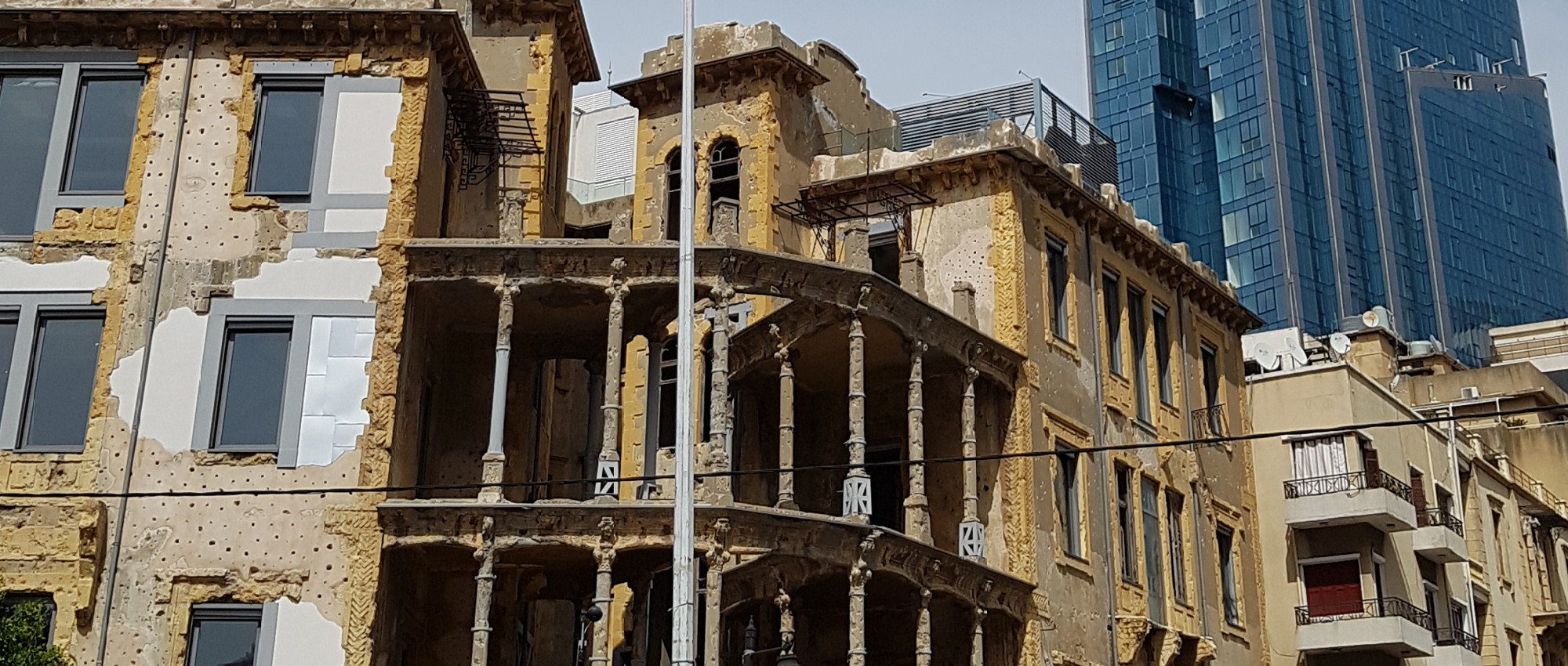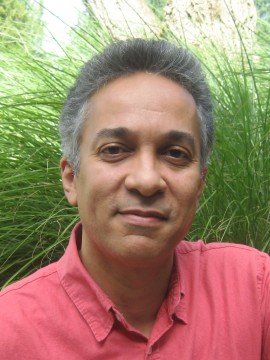Dr. Farid Laroussi, Associate Professor of French Studies at UBC, explores the connection between arts and ideology in his upcoming book on the 21st-century Arab world.


Beirut: When architecture testifies for wounded memory as well as a better future.
“My critical interest bears on the intimate connection between arts, politics and culture in a vast region that is usually associated with strife and conflict.”
Research


Dr. Farid Laroussi, Associate Professor of French Studies at UBC
My upcoming book called Aesthetic Alchemy: Arts and Ideology in the 21st-Century Arab World tackles the state of visual arts in the Arab world at large, from North Africa to the Middle East. My critical interest bears on the intimate connection between arts, politics and culture in a vast region that is usually associated with strife and conflict.
From a postcolonial framework, the most obvious outcome is that Western ideologies continue to have a big influence, not just in terms of curatorial power – for instance, what is shown in museums and art galleries in Europe or North America – but also in the problematics of art production.
Too often, outside market forces are stronger than self-censorship in many authoritarian Arab regimes. This is the situation of Arab artists caught between the temptation of self-Orientalizing in order to gain visibility, and the need to channel and transcend the cultural situations of a fast changing world, from Casablanca to Abu Dhabi.
The Approach
My approach starts from the canonical discourse regarding the function of (visual) arts, with a focus on truth rather than beauty. I also include a thorough discussion on the Islamic tradition, not because I want to dwell on native identities, but rather to confront spiritual conceptions with philosophical aesthetics. This leads to a key question: Is there an Arab imaginary, then?
To drive the point home in my scholarly endeavor, I carried out research in Beirut and Dubai thanks to a SSRHC Explore Grant. My journey was apropos and fruitful. Some of my ideas, notably around latent Orientalism, were substantiated, and I also discovered a multifaceted world where arts have become the main tool to explore memory and uphold hope for change. Beirut displays the beauty of a fragile world where, according to the artists I met, one function of art is to navigate guilt and a sense of responsibility. In Dubai, I encountered a flourishing art scene. Money helps, for sure, but it seems that the Emirates have backed arts and education in order to create their own storehouse of Arab modernity.
The Idea
The idea, and the argument for this book, came to me after I finished my last book Postcolonial Counterpoint. There was a sense that postcolonial/francophone literature had exhausted itself, or, more precisely, was no longer capable of reinventing itself. But at the same time, the postcolonial condition, from an Arab perspective, has been striving for permanence through the lens of visual arts (paintings, photography, video, installations). This was something I had to explore to determine what extent it is both the local and global gaze that is political, while the postcolonial discourse traffics through the materiality of life and can be subject to fantasy too.
Will this book have a critical impact? There is no doubt in my mind, if one only considers that most publications about today’s Arab world obsess with geopolitics and Islam. It is as though any aesthetic notion remained foreign to this part of the world.
My book, which is forthcoming at Liverpool University Press, will shed some light on issues that examine how local aesthetics exist and have transmuted into one key aspect of Arab modernity. My critical documentation and journey aim to recognize the aesthetic alchemy that has been taking place over there.
Dr. Farid Laroussi is a recipient of the SSHRC Explore Grant. Learn more.


